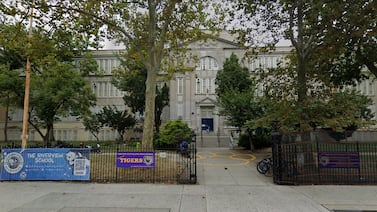Do you have Internet Essentials? Take this survey about the quality of your connection.
Philadelphia has expanded eligibility for PHLConnectED, its program to provide free internet access to families with school-age children.
City officials intensified outreach this week to families who now qualify for the program.
Under the new guidelines, all families who participate in public benefit programs with income qualifications, such as food stamps, will be eligible. Students who receive special education services or are learning English also qualify.
“We want to connect as many families as possible to reliable internet access,” said Mayor Jim Kenney in announcing the outreach campaign. “As digital learning continues, access to high-speed internet is more important than ever.”
Among the main beneficiaries of the expansion are customers who were enrolled in Comcast’s low-cost Internet Essentials program — especially those who fell behind on their payments — before the pandemic forced most learning online and Comcast began offering free access to new customers.
Even at $9.95 a month, the cost can prove too much for families who are struggling with other obligations, especially those who lost jobs during the pandemic.
“Throughout this process, we’ve also learned that many families already have internet service, but struggle to afford it,” said Chief Information Officer Mark Wheeler. Those already enrolled were not eligible for the two-months-free offer Comcast made last spring to new customers when some virtual learning began for almost all the schools in the city.
About 7,000 people signed up for the Comcast offer between April, when the offer was made, and August, when PHLConnectED started as a joint venture with the city, school district, internet service providers, and several foundations and non-profits. The $17 million program promised free internet until June 2022 to eligible households with students enrolled in kindergarten through 12th grade in the Philadelphia school district, as well as at most charters and some private schools.
Those 7,000 families have since been notified that they could enroll in PHLConnectED and receive free internet through the end of the 2021-2022 school year. That group accounts for more than half of the 12,000 families PHLConnectED has enrolled since its August launch, according to officials.
As part of PHLConnectED, the city designated three organizations to employ “digital navigators” who track down families, tell them about their eligibility, and help them complete the multi-step process.
“Most of the people I have talked to on the phone about Internet Essentials and PHLConnectED, they don’t know where to start,” said Miyo Imai, a digital navigator for the ExCite Center of Drexel University.
Besides Drexel, the other organizations with digital navigators are Community Learning Center, an adult literacy organization, and SEAMAAC, an advocacy group for immigrants.
Even before PHLConnectED started, Drexel and the other organizations had been reaching out to clients trying to help them with their internet connectivity and to obtain Chromebooks or other devices.
Signing up for PHLConnectED requires several steps, and many families just didn’t follow through.
“They have to take the initiative,” said Imai, who is a Drexel student studying computer science and psychology. “In the beginning, we weren’t getting very many calls, and we weren’t sure how to get the word out there.” It’s a Catch-22, she said — promoting a program online doesn’t work if people aren’t online.
“It was hard to get the word out to people who really needed it,” she said. The city turned to advertising through other means, which helped somewhat, she said.
But altogether, she estimates that she only succeeded with about 10 families to complete the process from beginning to end.
To sign up for the program, families can call a 24-hour, 211 hotline. They get a promotional code from the district or their participating school, which they must then activate before receiving the equipment they need to get online. Some families, such as those with less stable living situations, get hotspots through T-Mobile if that will better serve their needs.
Imai and other navigators said many families are in situations where other life challenges take priority over signing up for internet access.
“We have people coming back to us who don’t know how to set it up once they get a kit from Comcast,” Imai said, “Some have data plans on their phone, so we can send them links. But with other people, it is harder. They’ve never seen a modem or a router, they don’t have any idea what to do with them. There is such a range of people’s experiences with tech.”
Other people have called the Drexel navigators to say that their internet speeds are “ridiculously low. “One woman said she couldn’t open up a single web page,” she said.
Existing customers whose bills are in arrears will not have those obligations forgiven, but have not had their service cut off and will be able to receive free service through June 2022.
Before the expansion, eligible families included those with no access or access only through mobile phones, anyone experiencing housing insecurity, or those who had students who spent their days with caregivers at locations without access.







